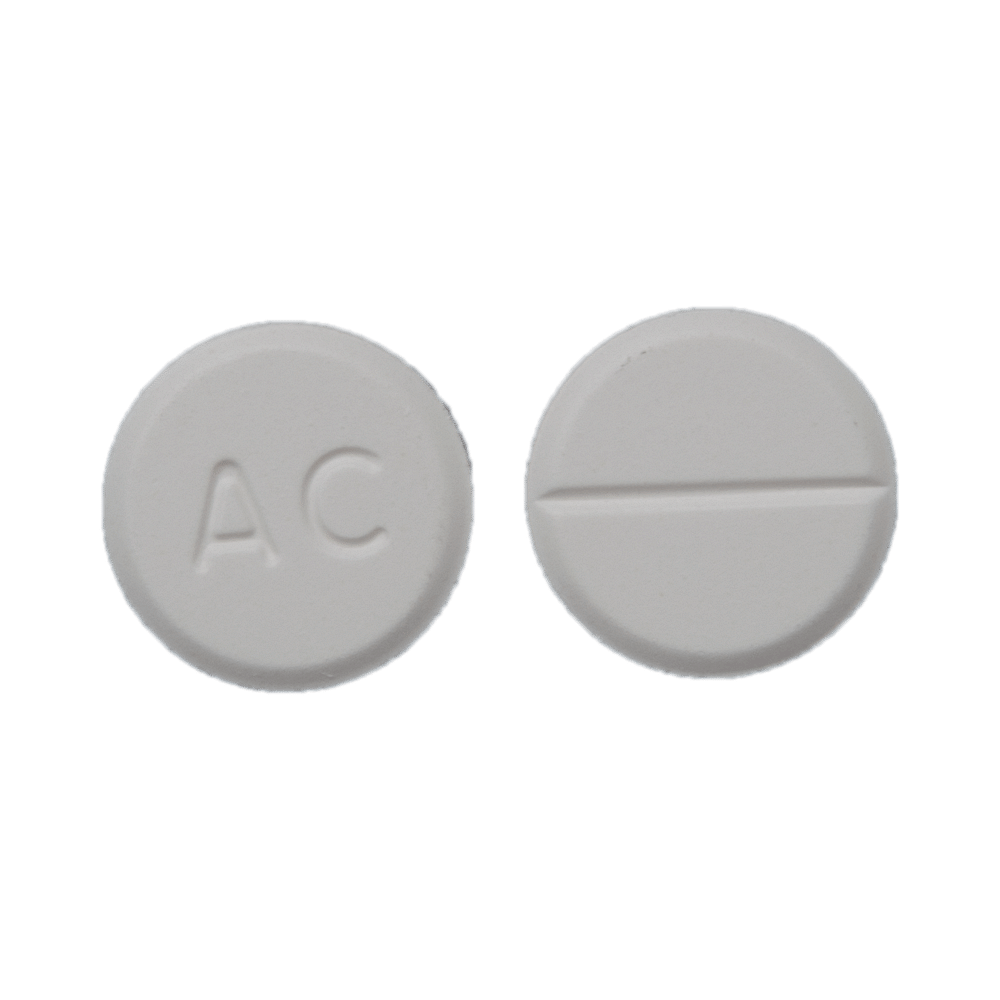
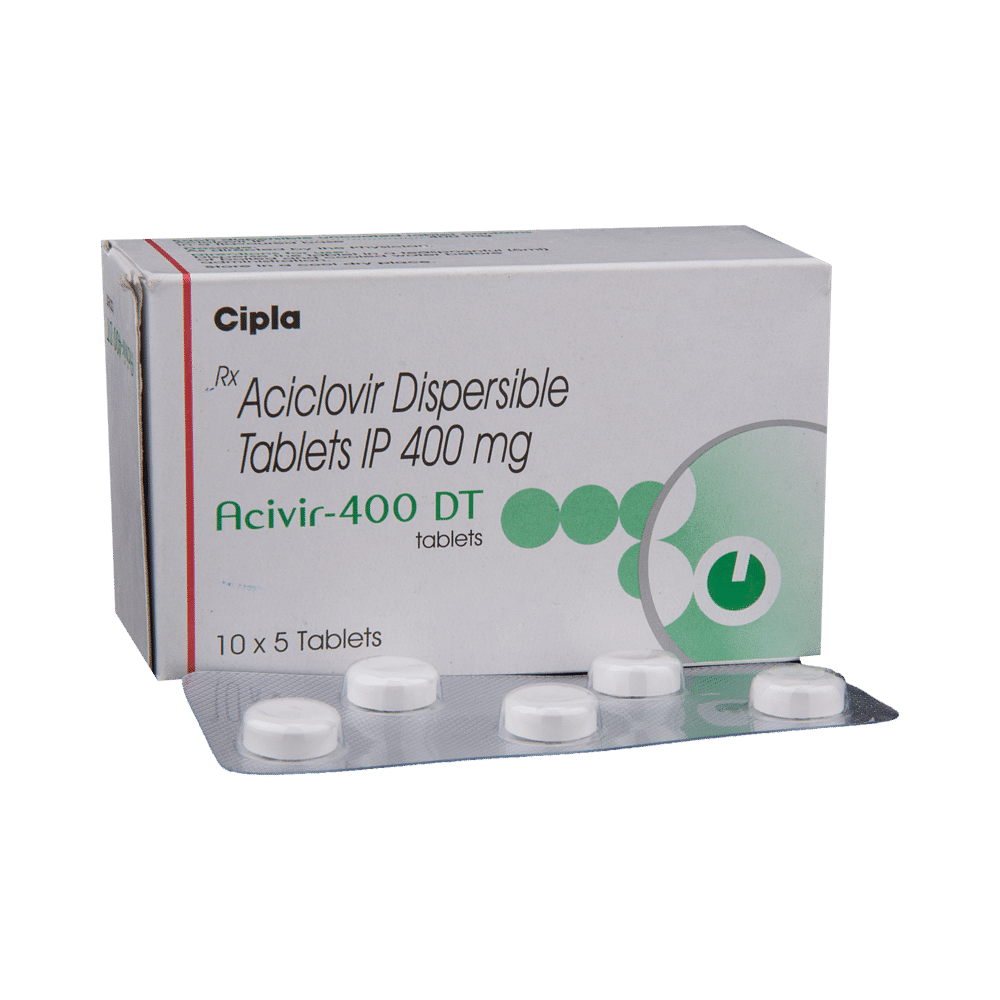
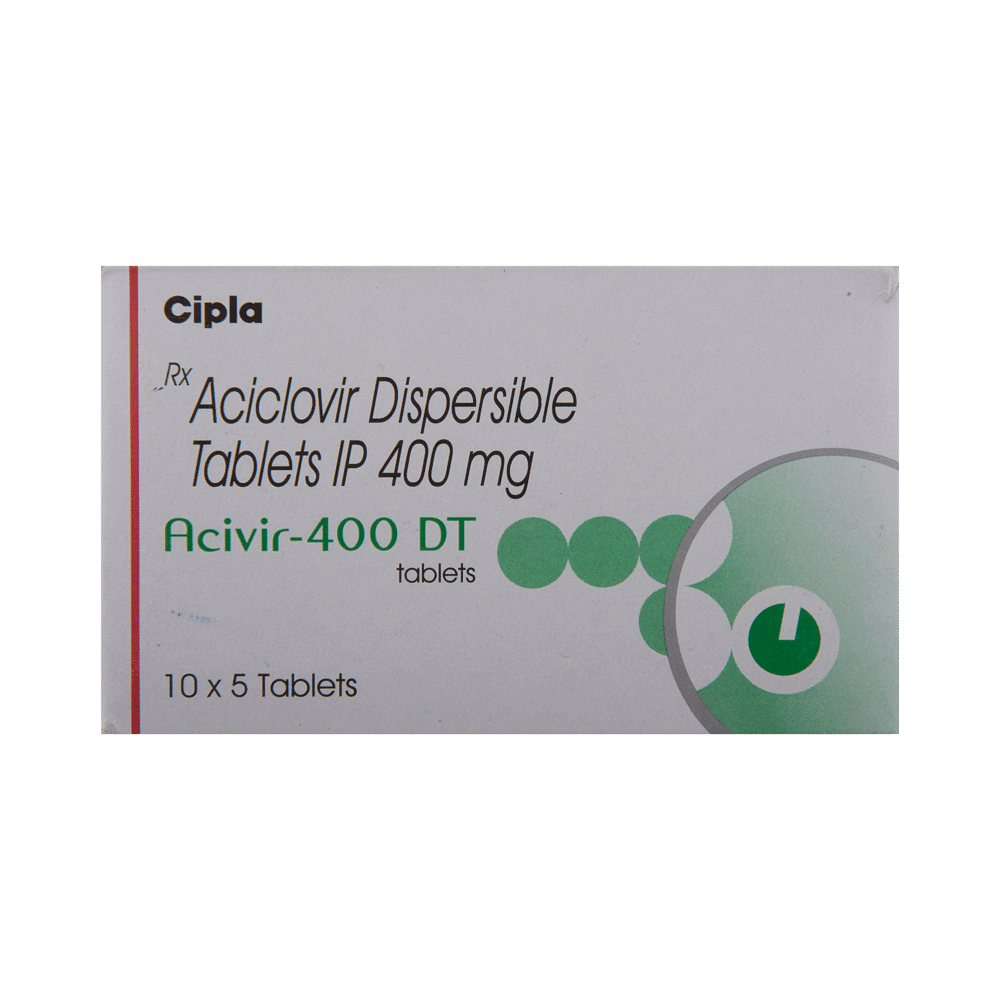
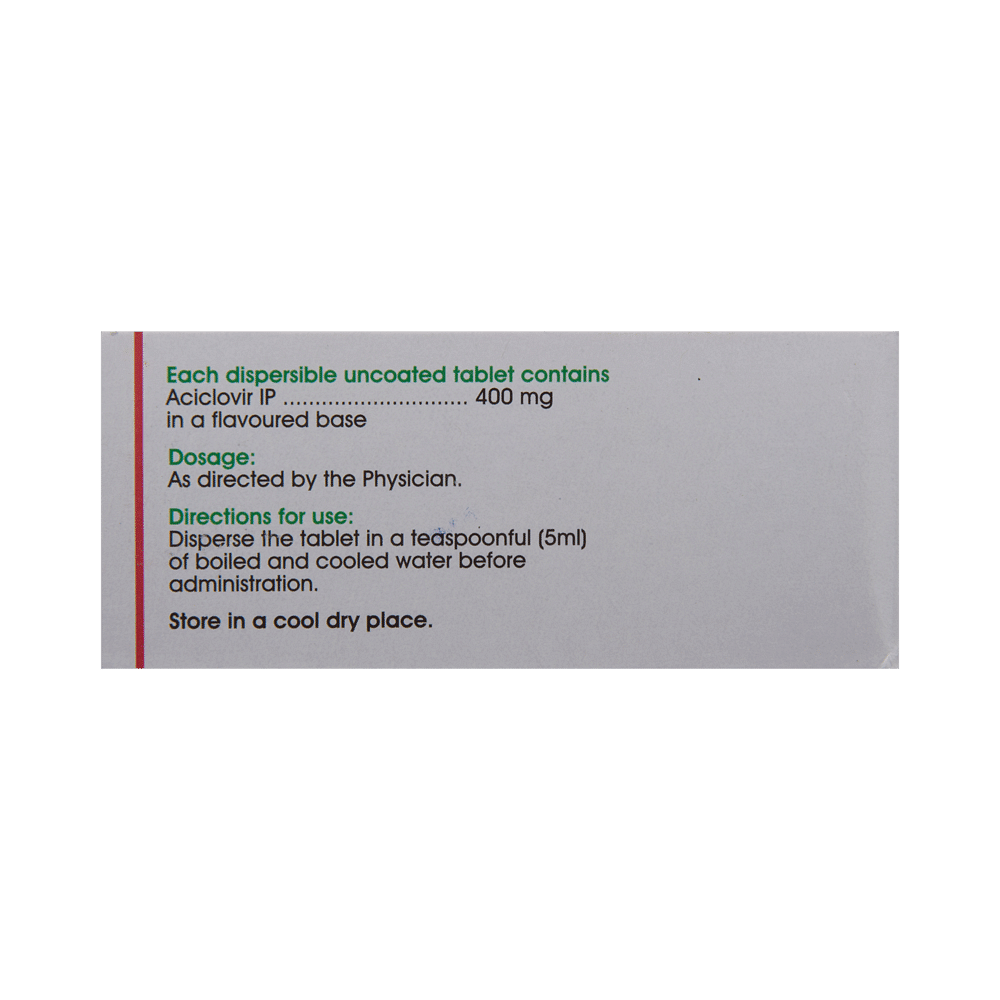
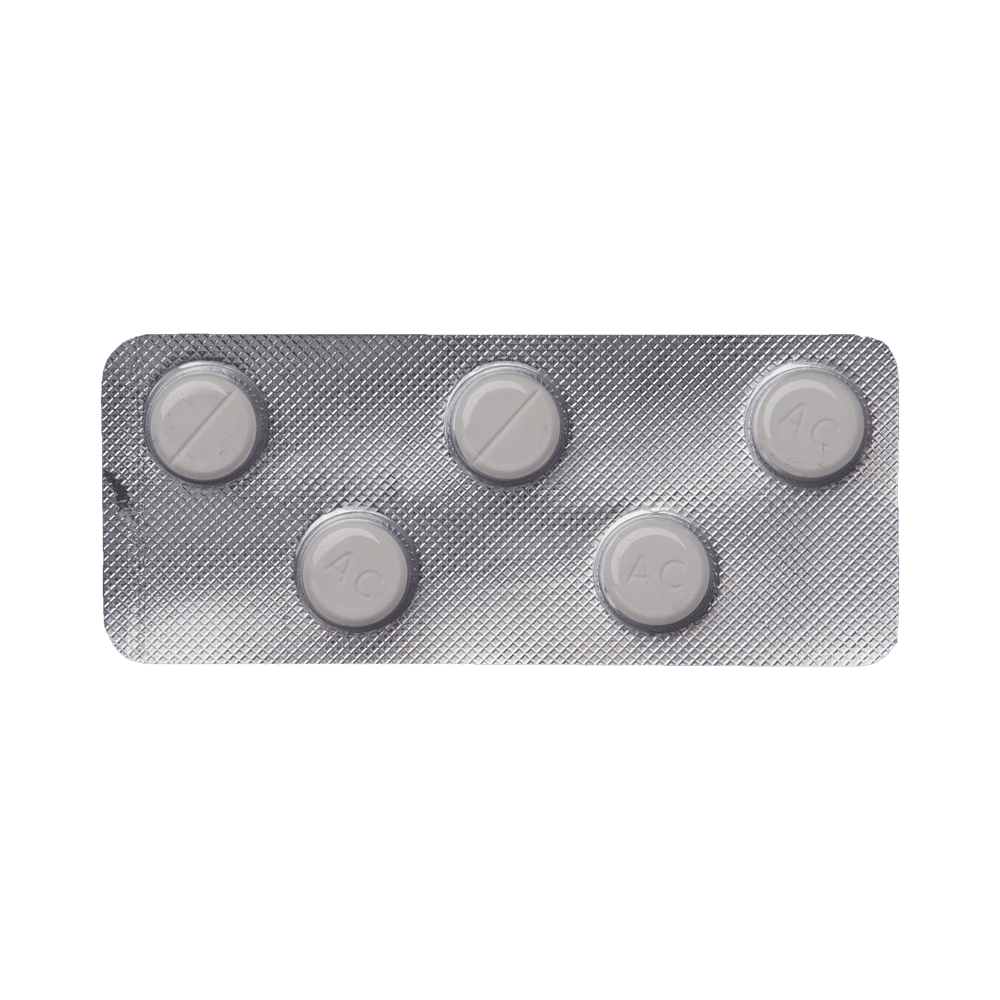
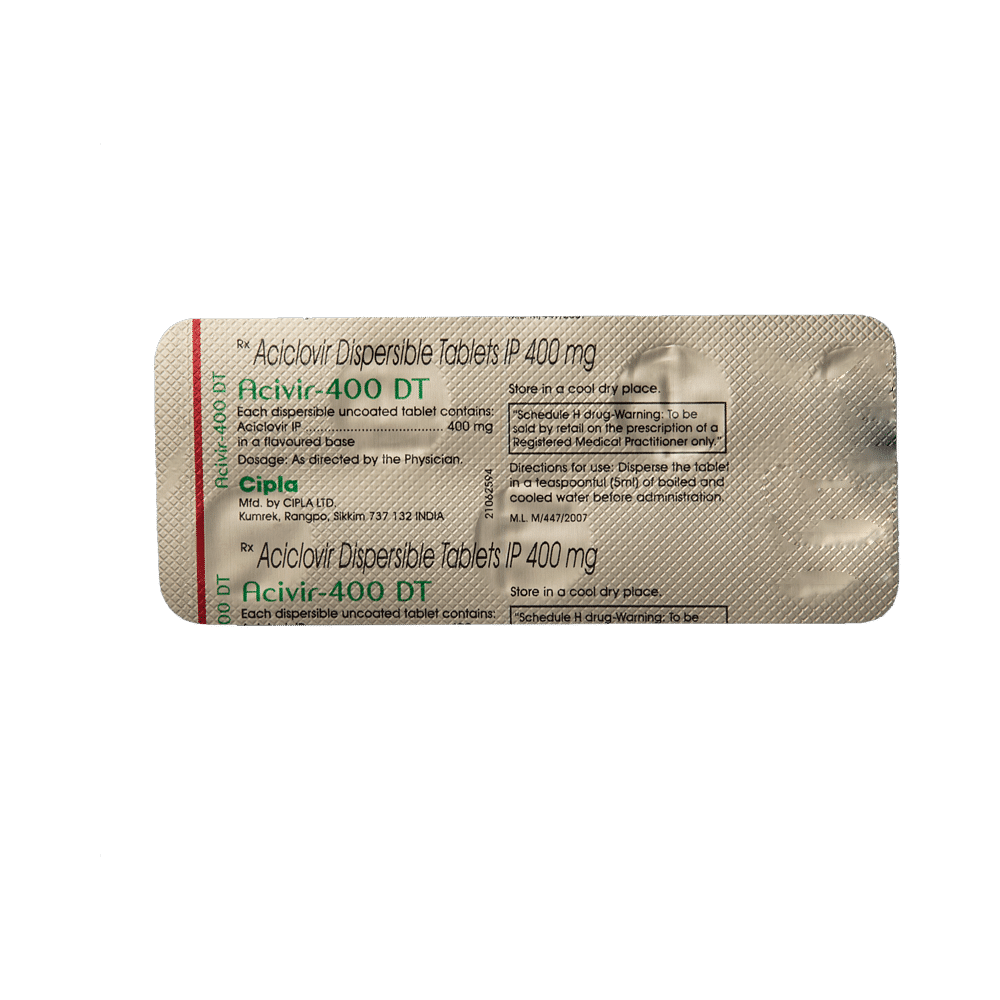
Acivir-400 DT Tablet
Manufacturer
Cipla Ltd
Salt Composition
Acyclovir (400mg)
Key Information
Short Description
Acivir 400 DT Tablet is an antiviral medicine used to treat viral infections such as herpes labialis, herpes simplex, shingles, genital herpes infection, and chickenpox.
Dosage Form
Tablet DT
Introduction
Acivir 400 DT Tablet should be taken in the dose and duration as advised by your doctor. Do not skip any doses and finish the full course of treatment even if you feel better. Dissolve it in a glass of water before taking it. It may be taken with or without food, but it is better to take it at a fixed time. If you miss a dose, take it as soon as possible. However, if it is almost time for your next dose, skip the missed dose and go back to your regular schedule. Do not double the dose. You should drink plenty of water while on treatment with this medicine as it helps to prevent dehydration and kidney damage.
Directions for Use
Take this medicine in the dose and duration as advised by your doctor. Dissolve it in a glass of water before taking it. Acivir 400 DT Tablet may be taken with or without food, but it is better to take it at a fixed time.
Safety Information
Side Effects
No common side effects listed.
Alcohol Warning
It is not known whether it is safe to consume alcohol with Acivir 400 DT Tablet. Please consult your doctor.
Breastfeeding Warning
Acivir 400 DT Tablet is safe to use during breastfeeding. Human studies suggest that the drug does not pass into the breastmilk in a significant amount and is not harmful to the baby.
Pregnancy Warning
Acivir 400 DT Tablet is generally considered safe to use during pregnancy. Animal studies have shown low or no adverse effects to the developing baby; however, there are limited human studies.
Interacting Medicines
Abacavir Adefovir Didanosine Entecavir
How it works
Acivir 400 DT Tablet is an antiviral medication. It prevents the multiplication of virus in human cells. This stops the virus from producing new viruses and clears up your infection.
Quick Tips
Do not skip any doses and finish the full course of treatment even if you feel better. Drink plenty of water while on treatment with this medicine. Use barrier methods (condoms) for contraception and avoid sexual contact while the sores are present. Inform your doctor if you are pregnant or planning to conceive or breastfeeding.
Related Medicines
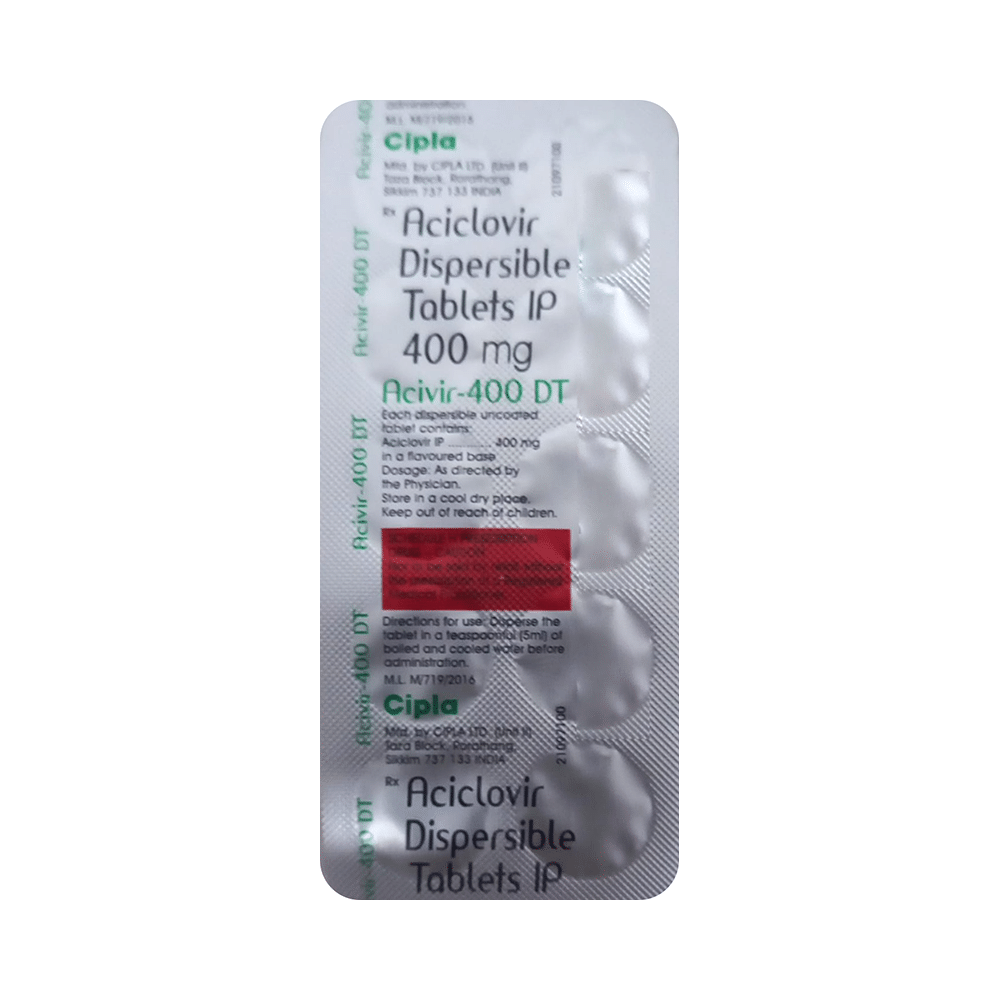
Acivir-400 DT Tablet

Ceptovir 400mg Tablet DT

Herpiford 400mg Tablet DT

Aclovir 400mg Tablet DT

Acylin 400 Tablet DT

Civir 400mg Tablet DT
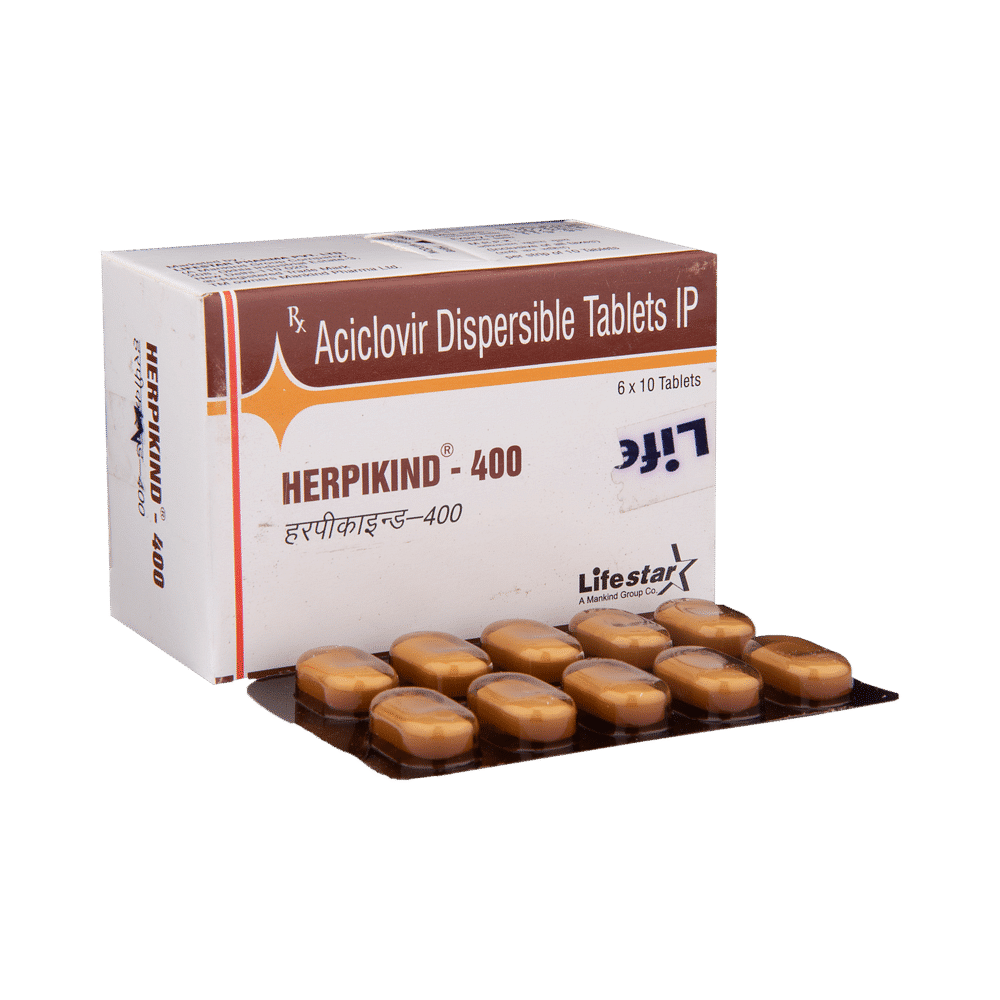
Herpikind 400 Tablet DT

Avir 400mg Tablet DT

Cloviral 400mg Tablet DT

Acvirax 400mg Tablet DT
Frequently asked questions
Will I get cured after taking Acivir 400 DT Tablet for shingles?
Acivir 400 DT Tablet is an antiviral medication effective against herpes simplex and varicella zoster viruses. It does not cure infections caused by these viruses but helps to minimize symptoms and shorten the duration of infection. It does not remove the viruses from the body, but prevents them from dividing and spreading.
Does Acivir 400 DT Tablet prevent transmission of infection to others?
No, you can still infect other people even while taking Acivir 400 DT Tablet. Herpes infections are contagious; avoid letting infected areas come into contact with other people. Avoid touching your eyes after touching an infected area. Wash your hands frequently to prevent transmitting the infection to others. You should practice safe sex by using condoms. You should not have sex if you have genital sores or blisters.
What are the serious side effects of Acivir 400 DT Tablet?
Serious side effects are rare, but if you experience them, seek medical advice immediately. These rare side effects include hives, blistering or peeling rash, yellow skin or eyes, unusual bruising or bleeding, loss of consciousness, fits, difficulty in breathing, hallucinations and swelling of the face, tongue, lips or throat.
Do elderly patients need to be more careful while taking Acivir 400 DT Tablet?
Older adults (over age 65 years) are more likely to experience side effects when taking Acivir 400 DT Tablet. Their kidneys do not flush the drug out of their system as quickly as younger people's kidneys would. Elderly patients should drink plenty of water while on Acivir 400 DT Tablet and have their kidney function monitored. They should receive a lower dose and be closely watched for neurological issues.
What can happen if somebody takes more than the recommended dose of Acivir 400 DT Tablet accidentally?
Accidental, repeated overdoses of oral Acivir 400 DT Tablet over several days have resulted in nausea, vomiting, confusion, and headache. Consult your doctor immediately in case of an overdose.
Can I get resistant to Acivir 400 DT Tablet treatment?
Patients with advanced HIV disease or those with a weakened immune system have reported resistance to Acivir 400 DT Tablet. If you are not responding to Acivir 400 DT Tablet, the possibility of drug resistance needs to be checked.
Is hair loss caused by Acivir 400 DT Tablet permanent?
Hair loss is an uncommon side effect of Acivir 400 DT Tablet. It stops when the medicine is discontinued.


